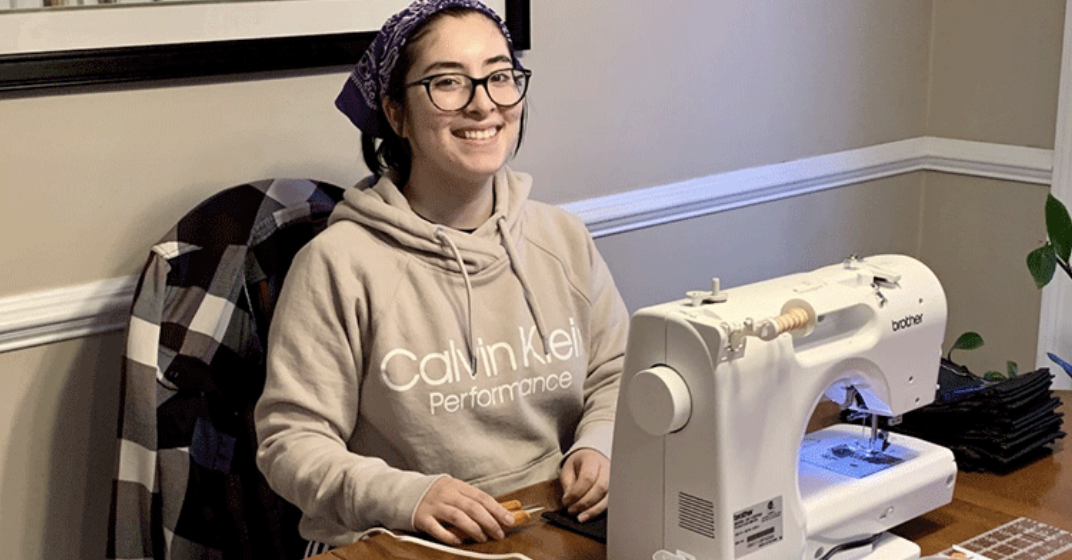"Our relationship with Midsummer Opera has always been based on theatre making and collaboration towards a meaningful goal.
A growing relationship between UMass Boston’s Theatre Arts program and Boston Midsummer Opera (BMO) turned idle hands, during a period of cancelled shows, into much needed support for local health care workers.
The opera company equipped the work-study students of the UMass Boston Performing Arts’ Costume shop to sew more than 300 masks, all delivered to the Cambridge Health Alliance for distribution to home health workers. Midsummers’ General Manager, Ellen Golde, said the company sought to use some funds from cancelled productions to make an impact for health workers, and past performance by UMass Boston interns and the relationship with Rafael Jaen, Chair of UMass Boston Performing Arts, made the collaboration a natural fit -- Jaen also serves as Costume Designer for the BMO.
Costume Shop Manager Michael Vincent provided masterful coordination; procuring and delivering the equipment, supplies, and patterns from the Centers for Disease Control to the students, all of which worked at home while balancing classes and social distancing guidelines.
“When this happened, we wanted to offer the money we had on hand for this year’s production back to our freelancers who didn’t have any money coming in,” Golde said. “They offered to not take their fees until we recover, so we decided to take the money we’d set aside for costumes to do something useful.”
“We decided to buy sewing machines, donate those things to UMass Boston,” she said. “Maybe they will continue to make masks, but the machines become a permanent part of the UMB costume shop.”
For the students, all work-study who took the position to craft costumes for the spring Theatre Arts production, it was a welcome opportunity to do meaningful work and support the work of health workers in the field. They began the semester planning to work on 19th century period costumes for Pride and Prejudice, a production postponed to the fall semester. But the sewing skills involved transferred naturally to making PPE.
“It’s nice to know this is still tied to work-study, a way to feel productive,” said Ema Almon, a sophomore whose been working in the costume shop since her first semester, and one of the UMass Boston interns with Midsummer last fall. “I like that I still have an opportunity to work and also contribute.”
“I think that sewing is a good skill, a survival skill, but not everyone has it,” said KT Taylor, a first-year student. “If the resources are available, it’s gratifying to know we’re doing our part for the community, state, and country.”

For Jaen, the project represents more than supporting local health care workers and safety, but evidence that the spirit of collaboration and meaningful work has positive benefits that cannot be predicted.
“Our relationship with Midsummer Opera has always been based on theatre making and collaboration towards a meaningful goal. Our students, who interned backstage during past performances, had an incredible experience, and did amazing work,” Jaen said. “No one in the theatre world imagined a season in the dark, but the relationships and skills grounded in making art so quickly transformed to a meaningful project to protect health care workers. We couldn’t have predicted that together, we’d shift from making costumes to making protective masks, but it’s also not surprising. With empathic vision, technical savvy, and superb coordination the magic that fuels theatre production lives on!”